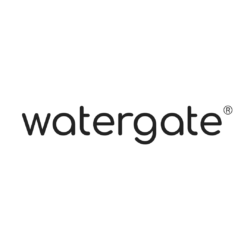Upcoming sustainability reporting standards: what UK hospitality businesses need to know
A new era of sustainability accountability
The UK hospitality industry is facing increasing pressure to demonstrate sustainability efforts. The government’s upcoming Sustainability Reporting Standards (SRS) will require businesses to disclose their environmental impact, covering areas such as carbon emissions, energy use, waste management – and, crucially, water efficiency.
While small and medium-sized enterprises (SMEs) won’t be directly required to comply in the initial rollout, they may still be affected as larger hospitality operators and corporate clients demand sustainability data from their supply chains. Businesses that act now will not only stay ahead of future regulations but also cut costs and enhance their brand reputation.
What are the sustainability reporting standards (SRS)?
The UK’s SRS framework is expected to align with global sustainability reporting initiatives, such as the Task Force on Climate-related Financial Disclosures (TCFD) and the EU’s Corporate Sustainability Reporting Directive (CSRD).
Initially targeting large, listed companies and major private enterprises, the scope could expand over time. Although full details are still emerging, businesses will likely need to report on:
Water consumption and efficiency
Carbon footprint and energy use
Waste management and recycling
Climate resilience and sustainability risks
For hospitality, this means water efficiency will become a key metric, much like energy reporting has been in recent years.
Why water efficiency is coming under the spotlight
Hospitality businesses have focused heavily on reducing energy consumption, but water has remained an overlooked resource. That’s changing for three key reasons:
- 1
Water scarcity is becoming a UK business risk
The Environment Agency warns that England could face serious water shortages within the next decade due to overuse and climate change, unless we do something about it. With hospitality among the most water-intensive industries, businesses will face increasing pressure to cut consumption and reduce waste.
- 2
Water costs are set to rise by over 40%
– Ofwat’s final price determinations for 2025-2030 confirm that wholesale water charges will increase by an estimated 42% before inflation, significantly raising costs for businesses.
– Average residential water bills will rise, in some cases, by as much as 47% over the next five years, which means hospitality operators – who consume far more water than households – could see even steeper price hikes.
– Without active water efficiency measures, businesses will see substantial cost increases, while those investing in smart water management will protect their bottom line.
- 3
Large operators will demand supply chain compliance
Even if SRS doesn’t directly apply to SMEs yet, it will impact hospitality businesses that supply or work with larger hotel chains, corporate venues, and restaurant groups. Many will require water efficiency data as part of sustainability commitments, making it essential for smaller operators to be prepared.
How hospitality businesses can prepare
Rather than waiting for regulations to mandate action, hospitality businesses should start implementing water efficiency measures now.
- 1
Measure and benchmark water use
– Conduct a water audit to identify inefficiencies.
– Benchmark against industry best practices and set reduction targets.
- 2
Implement smart water management
– Leak detection and prevention: Smart sensors detect leaks early, reducing costs and damage.
– Automated monitoring: Systems like Watergate Sonic provide real-time data to optimise water use.
– Low-flow fixtures: Upgrading taps, toilets, and showers can cut consumption by up to 50%.
- 3
Integrate water data into sustainability reports
– Even if not required yet, tracking water efficiency metrics now will help businesses get ahead.
– Use this data to highlight cost savings and sustainability improvements.
- 4
Train staff and engage guests
– Educate employees on simple water-saving habits in kitchens, bars, and housekeeping.
– Engage customers with initiatives like voluntary linen reuse programs to promote conservation.
The Bottom Line: Future-proof your business with smarter water management
Sustainability reporting is moving from voluntary to mandatory, and water efficiency is set to play a bigger role. Even businesses not yet directly affected should take action to reduce costs, stay competitive, and align with industry trends.
Hospitality has made huge progress in energy efficiency – now it’s time for water to take centre stage.
Want to know how your hospitality business can cut water costs and prepare for future sustainability reporting?
Download our free eBook to learn simple, practical steps to reduce water waste and future-proof your business.
UKHospitality members get a special discount for Watergate products.


